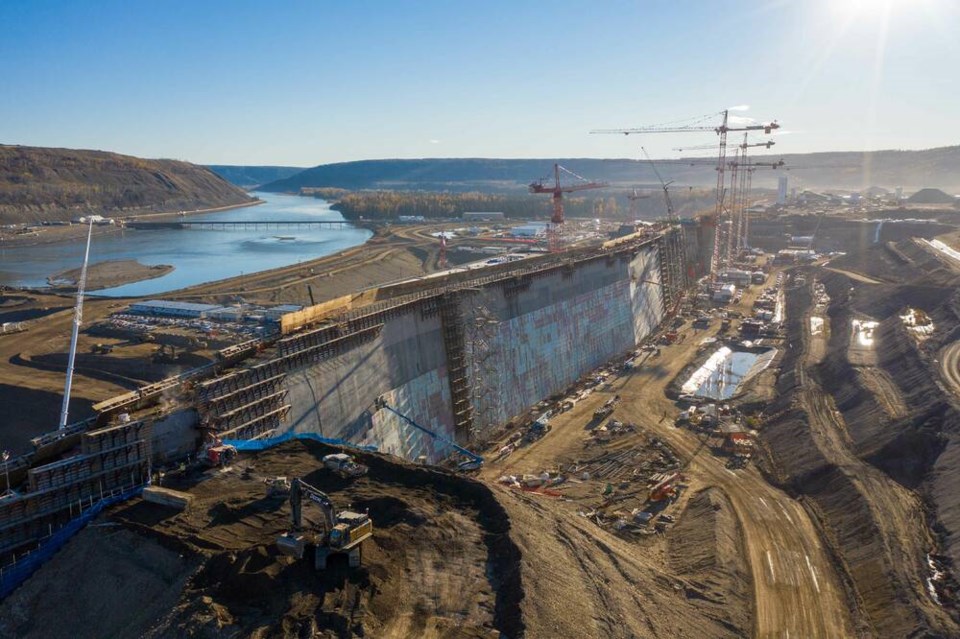Two conservation groups allege B.C. Hydro has failed to meet its legal obligations to compensate for the environmental damage caused by their hydroelectric dams.
The B.C. Wildlife Federation and the UVic Environmental Law Centre have submitted a 66-page brief to Michael Pickup, B.C.’s auditor general, calling for an audit and examination of the Crown corporation’s funding of the Fish and Wildlife Compensation Program.
B.C. Hydro has legal and moral obligations to ensure that fish and wildlife habitat is restored in the Coastal, Columbia and Peace regions, said Calvin Sandborn, legal director of the UVic Environmental Law Centre.
“B.C. Hydro has flooded more than 2,000 square kilometres of land. And in the process of doing that, they flooded some of the richest, most fertile habitat in the province,” said Sandborn.
Under the Water Sustainability Act, in order to dam a river, B.C. Hydro has to get a license from the province and there are conditions on that license that there must be compensation for the losses through the Fish and Wildlife Compensation Project.
However, he said too much of the program’s funding is going to projects such as monitoring work, education such as bear awareness, and invasive species management.
“The basic problem here is that a vast amount of the money is not compensating for the losses when they flooded those valleys … and what we’re arguing is that the program has lost its way. And a lot of this money is finding its way into subsidizing government,” said Sandborn.
The requested audit would examine the expenditure of B.C. Hydro funds to the Fish and Wildlife Compensation Program and the distribution of those funds to compensate for damage done by B.C. Hydro facilities.
“By failing to adequately compensate for lost and degraded public natural resources, B.C. Hydro is failing to act in the public interest,” the brief says.
In an email, B.C. Hydro spokesperson Simi Heer confirmed CEO Chris O’Riley’s office had received a copy of the brief.
Heer noted that the Fish and Wildlife Compensation Program is a partnership between B.C. Hydro, the province, Fisheries and Oceans Canada, First Nations and other stakeholders and said it’s “focused on conserving and enhancing fish and wildlife in watersheds that have been impacted by existing B.C. Hydro dams.”
Heer said if the auditor general does take an interest in the program, B.C. Hydro would “welcome the opportunity to provide further information.”
The program does not fund core government activities, and only funds projects that align with its action plans including habitat-based actions, species-based actions, research and information acquisition, monitoring and evaluation, and land securement, said Heer.
Heer added some recent restoration projects include restoring riparian habitat in the Puntlege River Watershed, and another for shore-spawning kokanee in Kootenay Lake.
Sandborn acknowledged that program has successfully funded some habitat restoration programs, for example fish habitat restoration in the Kootenays, however he said 100 per cent of the funding should be going to restoring habitat and not subsidizing government function.
“The program shouldn’t be dealing with invasive species. They’ve clearly said that invasive species have nothing to do with the dams being built. So why are they subsidizing government invasive species programs with this?
He also noted that Americans spend more than 40 times more than Canadians do through a program meant to restore the damage done by their dams.
The Compensation Program for B.C.’s Columbia Region spends around $5.5 million on ecological compensation annually. In Washington state, the U.S. Bonneville Power Administration spent US$788 million on fish and wildlife in 2019, including US$240 million on direct-funded ecological compensation projects in the Columbia Basin, according to the B.C. Wildlife Federation.
Federation executive director Jesse Zeman said in a statement that B.C. Hydro’s dam and reservoir footprint has ruined endangered white sturgeon habitat, flooded out critical winter range for moose, mule deer, elk, and endangered mountain caribou.



